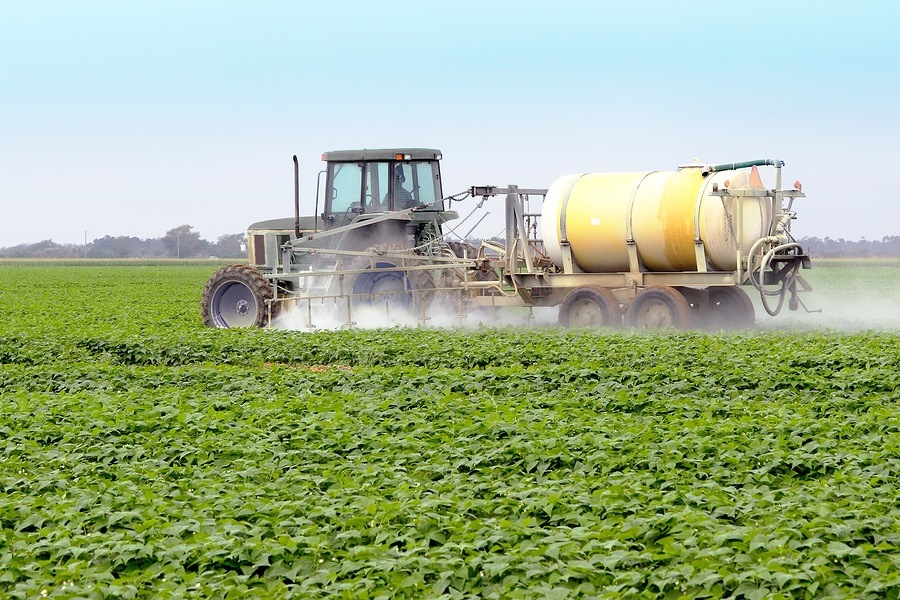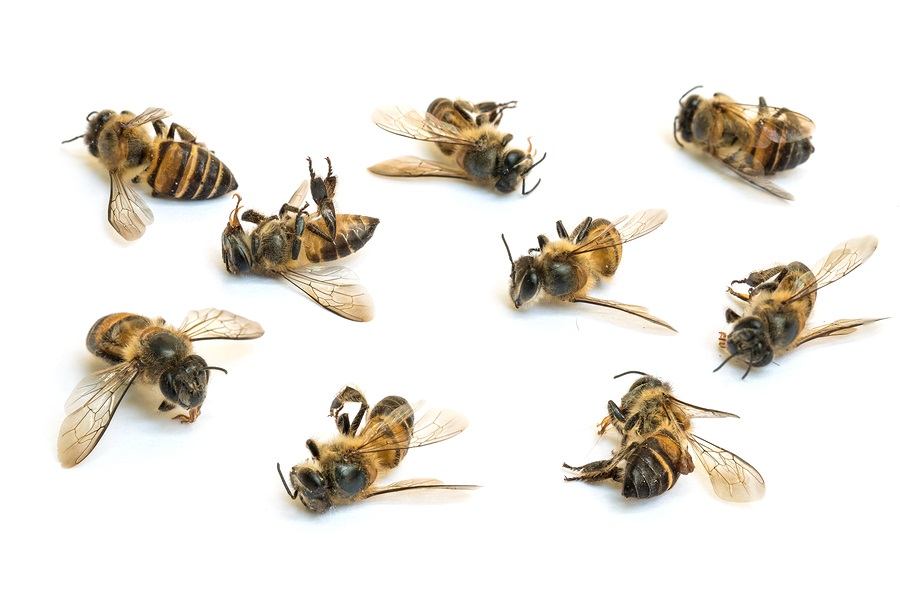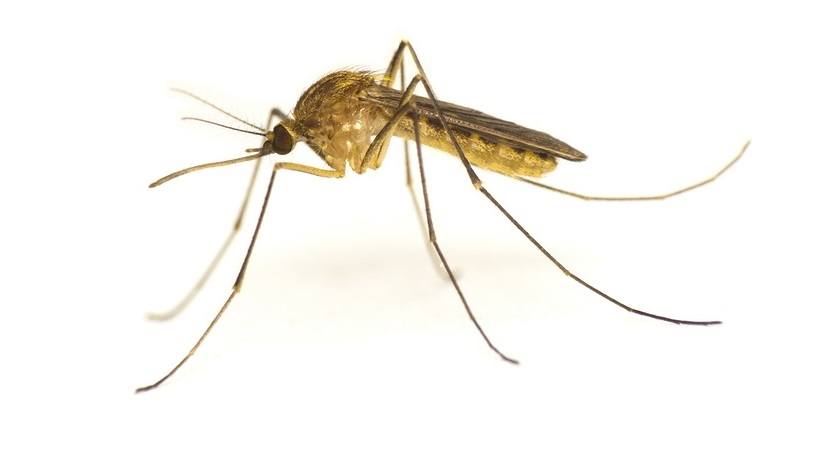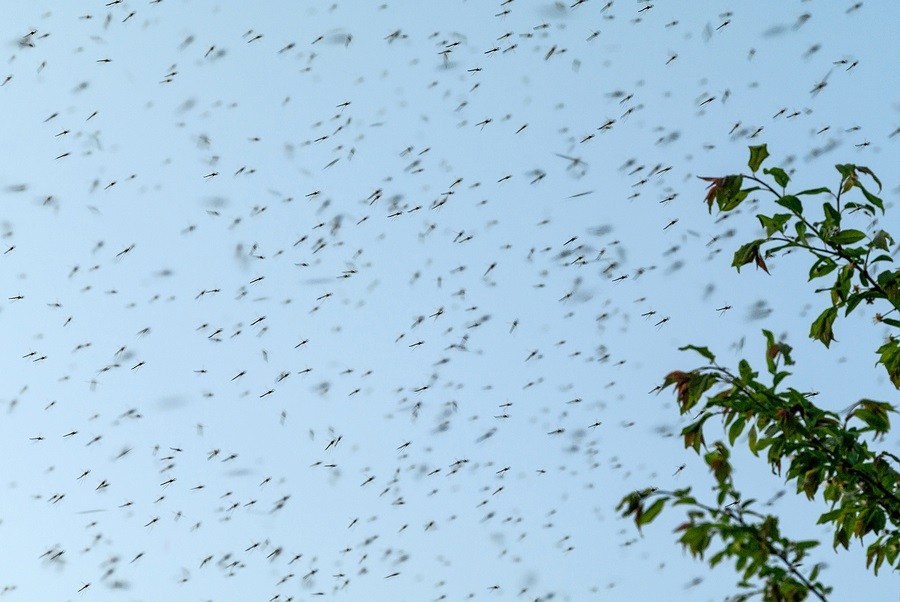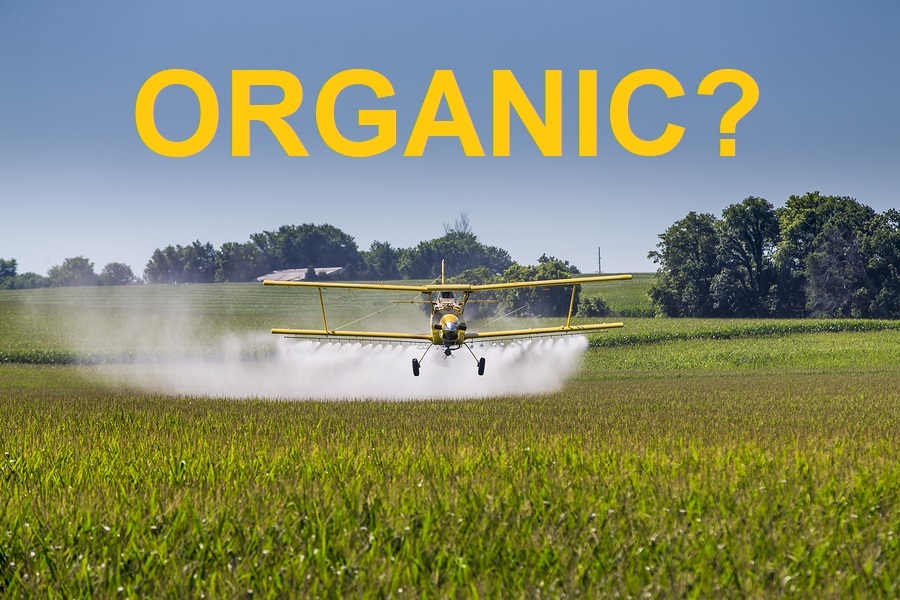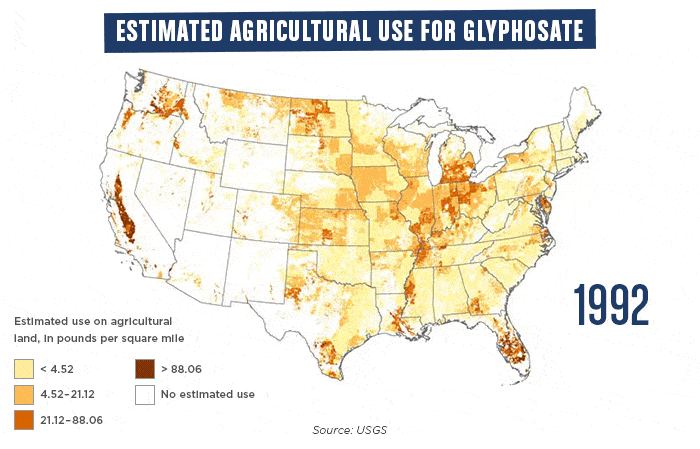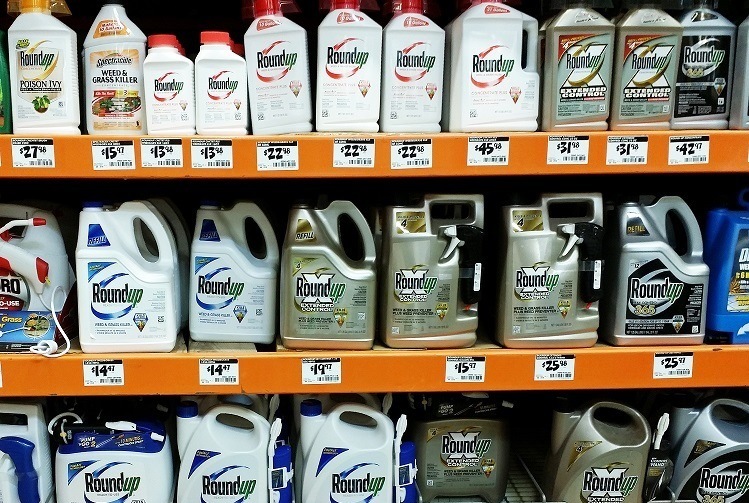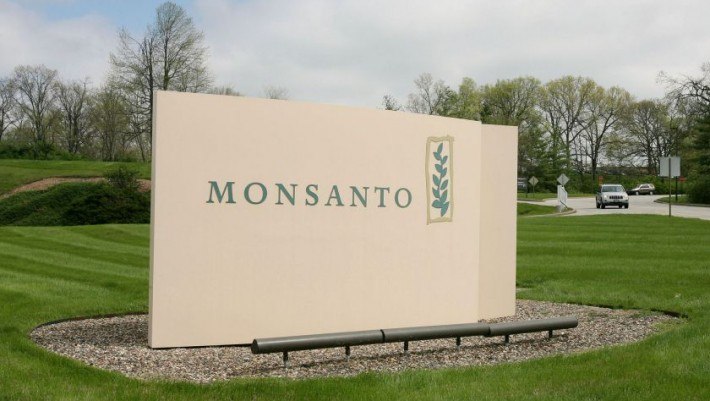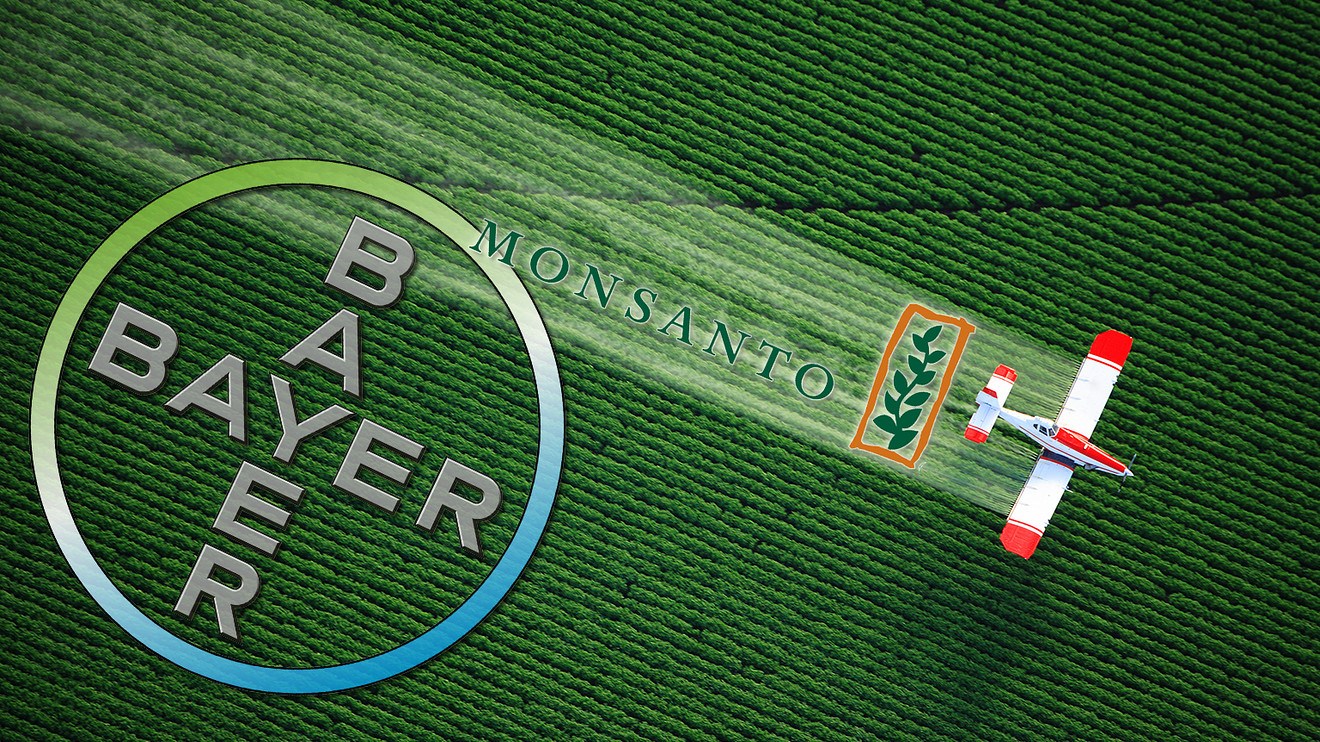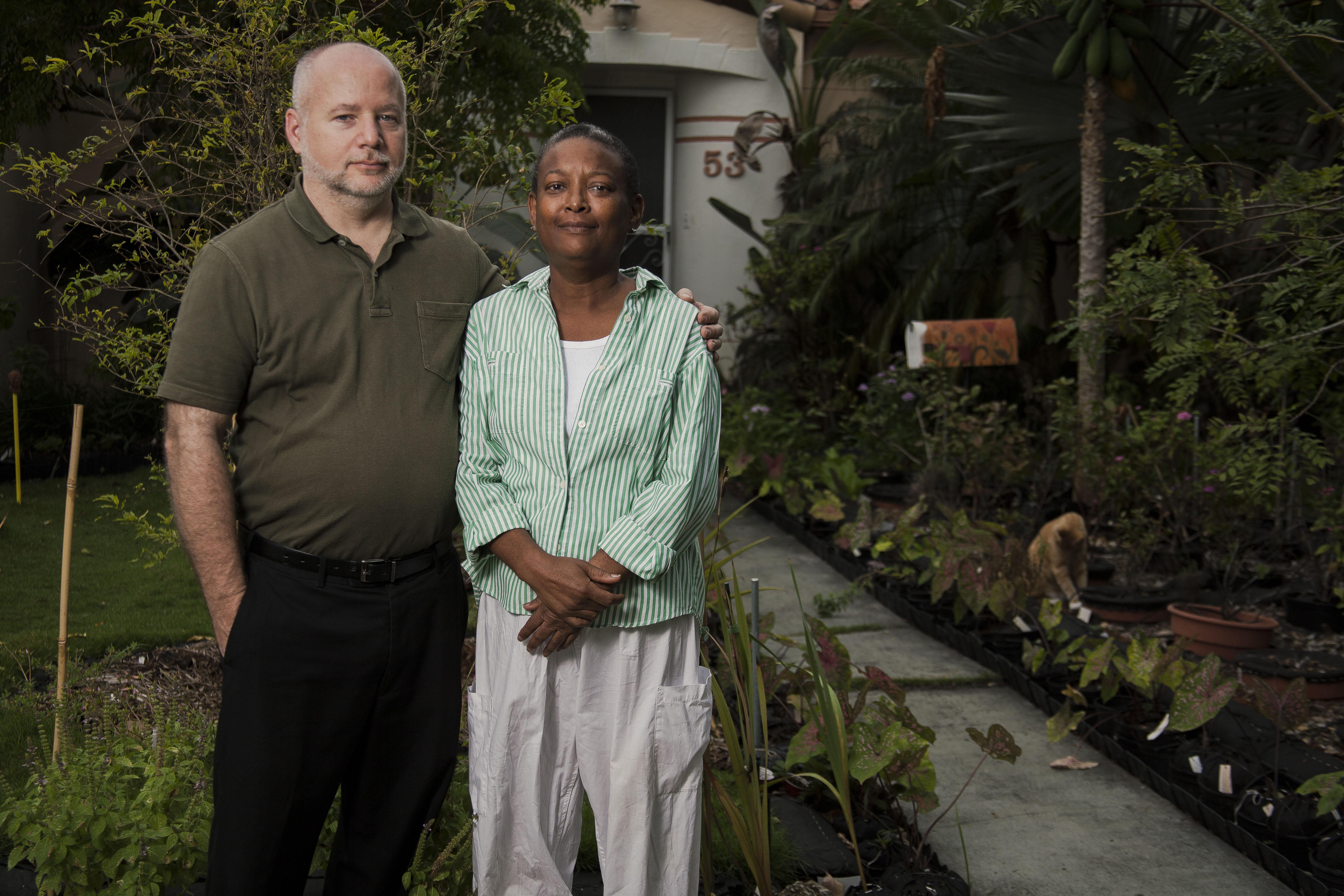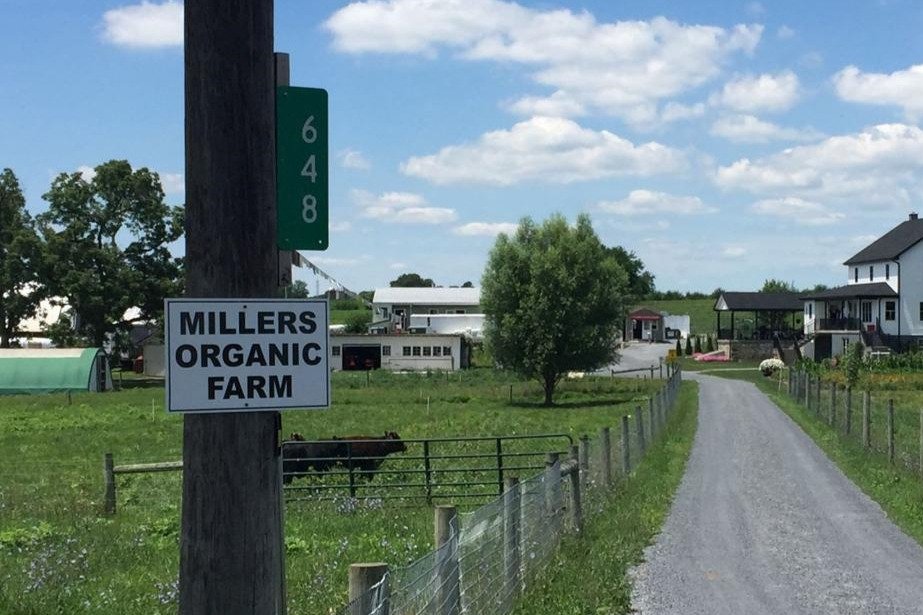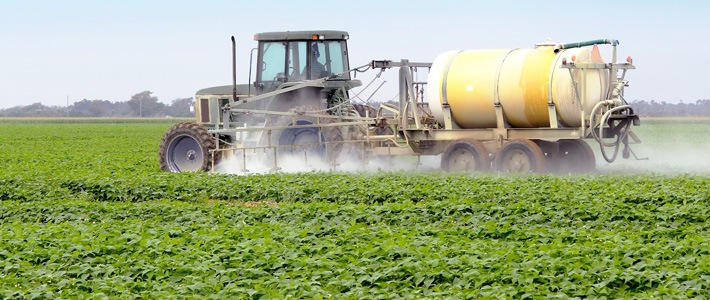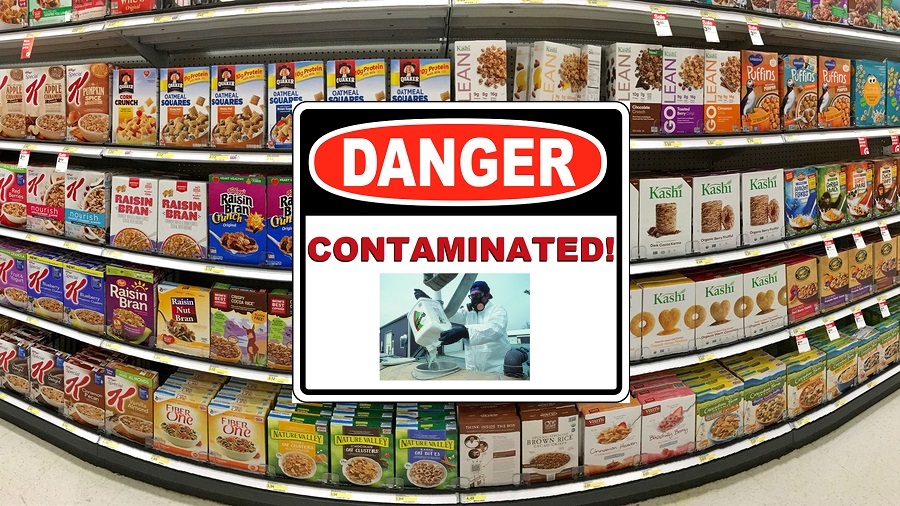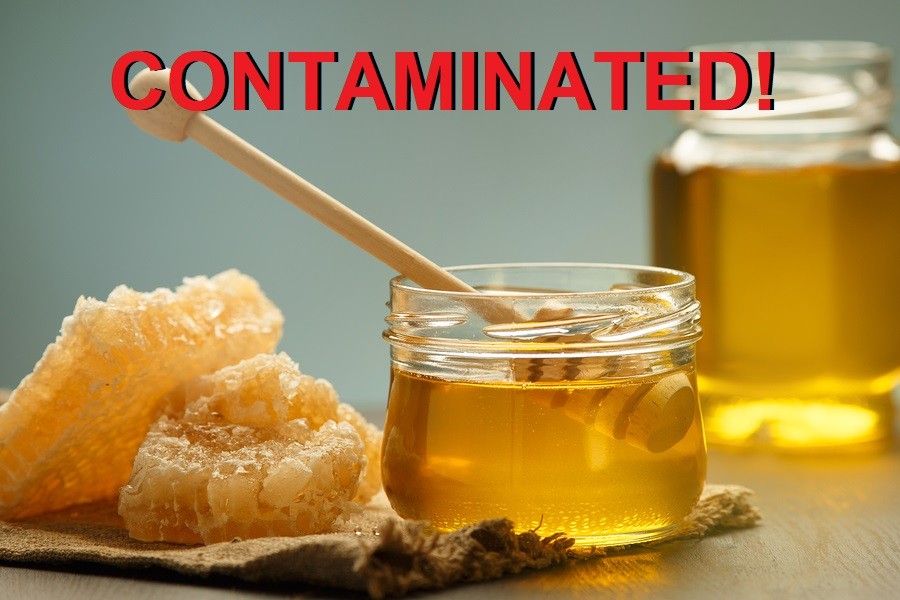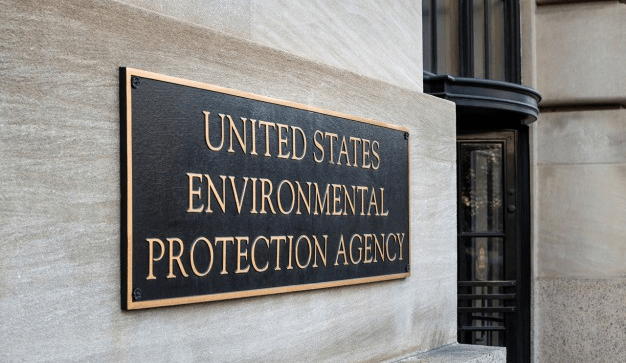News regarding the dangers of GMOs and biotech, and the advantages of organic sustainable agriculture.
Monsanto Loses Millions as Indian Cotton Farmers are Switching Back to Indigenous Seeds
Monsanto is making the news these days for losing. They have lost three court cases in which Roundup has been linked to cancer. In India, they are losing, too. After years of pushing a strain of Bt Cotton, Indian farmers have had enough and are switching back to native seeds for the cotton industry. It’s been a hard road for cotton farmers in India dealing with Monsanto. To begin with, Monsanto illegally began open field trials of its GMO Bt cotton in 1997 and announced it would begin selling seeds the following year. In turn, the Indian Supreme Court would not allow the biotech giant to sell seeds until 2002. Since then, over 300,000 Indian farmers have committed suicide. It is believed that many of these suicides were linked to major debts incurred by the systematic control of Monsanto and Bt cotton. Expensive seeds and the pesticides needed can only be bought from Monsanto. The agricultural ministry of India stated, “Cotton farmers are in a deep crisis since shifting to Bt cotton. The spate of farmer suicides in 2011-12 has been particularly severe among Bt cotton farmers.” Monsanto’s Bt cotton seeds have been dubbed “Seeds of Suicide” by residents in India. And now, India is waking up and ready to fight back. The Indian government has begun to promote the use of native varieties of cotton, seeds more specific to each area. In the time that farmers have begun switching back to indigenous seeds, Monsanto has seen a loss of $75 million.
FDA Pesticide Report: 84% Fruits, 53% Vegetables, 42% Grains Contaminated in U.S.
Last month the Food & Drug Administration published its latest annual analysis of the levels of pesticide residues that contaminate the fruits and veggies and other foods we Americans routinely put on our dinner plates. The fresh data adds to growing consumer concern and scientific debate over how pesticide residues in food may contribute – or not – to illness, disease and reproductive problems. Over 55 pages of data, charts and graphs, the FDA’s “Pesticide Residue Monitoring Program” report also provides a rather unappetizing example of the degree to which U.S. farmers have come to rely on synthetic insecticides, fungicides and herbicides in growing our food. We learn, for instance, in reading the latest report, that traces of pesticides were found in 84 percent of domestic samples of fruits, and 53 percent of vegetables, as well as 42 percent of grains and 73 percent of food samples simply listed as “other.” Roughly 94 percent of grapes, grape juice and raisins tested positive for pesticide residues as did 99 percent of strawberries, 88 percent of apples and apple juice, and 33 percent of rice products, according to the FDA data.
RoundUp Herbicide Glyphosate Impairs Honeybee Sensory and Cognitive Abilities
A new review of the scientific literature has found that exposure to glyphosate, the active ingredient in glyphosate herbicides like Roundup, impairs the foraging behaviour of honeybee workers and has adverse effects at different levels within the colony. Key points from the review include: * In 2015, of the 179.9 million ha of global GMO crop area, about 84% contained crops that carried herbicide-resistant genes. Most GMO crops are engineered for tolerance to glyphosate herbicides. * Glyphosate herbicides are also used on many non-GMO crops and in non-farm environments. * Honeybees' ingestion of food containing high concentrations of glyphosate resulted in a higher proportion of disoriented foragers. Despite this, honeybees continued foraging from resources that contain glyphosate traces. These sublethal effects on their learning abilities could impact not only the foraging efficiency, but also the coordination of collective activities within the colony. * Honeybees' ability to establish an association between an odour and a sucrose reward was impaired by an acute exposure to glyphosate. * There is evidence that glyphosate diminishes short-term memory retention in honeybees. * Honeybee colonies that are permanently exposed to glyphosate are likely to show a deficit in information propagation and nectar distribution. * Glyphosate causes changes in gut microbiota and greater susceptibility to pathogens and malnutrition.
Not All Stands in Farmer’s Markets Sell Healthy Food – How to Shop at Farmer’s Markets
With the fall season in full swing and harvest season upon us, most states feature farmer's markets where it is possible to purchase fresh food directly from the farm, while cutting out the middlemen that are typically involved in getting food to the consumer. However, just being in a farmer's market does not guarantee that the vendor is selling healthy food. Large farms that supply the same commodity-based food that you find in grocery stores will often have stands in farmer's markets as well. Fraud and deception can be just as common in farmer's markets as it is in chain grocery stores, but often consumers let their guard down simply because the illusion is that food at farmer's markets is healthier. And with the erosion of national standards to obtain USDA organic certification, simply being certified organic is not enough to ensure you are buying clean food. In fact, the costs of maintaining USDA organic certification may be prohibitive for the smaller-scale farmers, where today the healthiest food might be from these smaller-scale farmers who do not have organic certification. Asking the right questions, and if possible visiting the actual farm, is the best way to find the healthiest foods at farmer's markets.
GMO Mosquito Trials Scheduled for Florida and Texas
Oxitec is proposing to release its genetically modified (GM) OX5034 Aedes aegypti mosquitoes in the US states of Florida and Texas. The EPA has opened a public comment period. Oxitec's application says, "Female offspring of the OX5034 mosquitoes in the environment are expected to die before they mature into adults and therefore exposure to biting female mosquitoes is not anticipated." However, experience with another strain of Oxitec mosquito, OX513A, shows that Oxitec's claims that its GM mosquitoes are self-limiting are unreliable. The GM mosquitoes ended up breeding with native mosquitoes, transferring their genes into the natural population and forming hybrid mosquitoes that may be more vigorous and have a different disease-carrying potential. Please write to the EPA objecting to the release.
Lowe’s and Walmart Sued for Selling RoundUp Weed Killer Linked to Cancer
A lawsuit filed earlier this month in a Texarkana federal court seeks damages on behalf of Arkansas and California consumers who bought Roundup weed killer products from Lowe's stores in those states. The suit, filed Sept. 13 by Texarkana lawyer Steve Harrelson in the Texarkana Division of the Western District of Arkansas, seeks to represent anyone who bought a Roundup product from a Lowe's store in Arkansas in the five years preceding the filing of the suit and anyone who bought a Roundup product from a Lowe's store in California in the four years preceding the filing. The suit against Lowe's is similar to one Harrelson filed in August against Walmart. That suit seeks damages on behalf of Arkansas residents who purchased a Roundup product from an Arkansas Walmart.
Genetically Engineered Mosquitoes Escape Human Control and are now Spreading in the Environment
According to a new scientific publication, genetically engineered mosquitoes produced by the biotech company Oxitec (Intrexon) have escaped human control after trials in Brazil. They are now spreading in the environment. The yellow fever mosquitoes (Aedes aegypti) are genetically engineered to make it impossible for their offspring to survive. After release they were supposed to mate with female mosquitoes of the species which transmit infectious diseases, such as Dengue fever, to diminish the natural populations. However, the now published research shows that many offspring of the genetically engineered mosquitoes actually survived and are spreading and propagating further. According to the scientists, between 10-60 percent of the mosquitoes in the region concerned are inheriting parts of the genome of the mosquitoes released in the trials. These insects used in the laboratory have now mixed with the Brazilian insects to become a robust population which can persist in the environment over a longer period of time. They might replace the original insects on the long term and even exacerbate the problems associated with the mosquitoes. Christoph Then for Testbiotech commented, “The Oxitec trials have led to a situation that is largely out of control."
Missouri Farmer Who Ran Largest Organic Food Fraud Scheme in U.S. History Takes Own Life Instead of Reporting to Prison
Last month (August, 2019), U.S. District Judge C.J. Williams sentenced Missouri farmer Randy Constant to 10 years in prison in what is reportedly the largest organic food fraud scheme in U.S. history. Judge Williams gave shorter prison terms to three Overton, Nebraska, farmers whom Constant recruited to join the scheme. According to the Associated Press: "The farmers reaped more than $120 million in proceeds from sales of the tainted grain. The scheme may have involved up to 7 percent of organic corn grown in the U.S. in 2016 and 8 percent of the organic soybeans, prosecutors said. 'Thousands upon thousands of consumers paid for products they did not get and paid for products they did not want,' Williams said. 'This has caused incalculable damage to the confidence the American public has in organic products.' Williams said the scam harmed other organic farmers who were playing by the rules but could not compete with the low prices offered by Constant’s Iowa-based grain brokerage, and middlemen who unknowingly purchased and marketed tainted organic grain." Randy Constant reportedly never showed up to serve his prison term, but committed suicide instead.
RoundUp Herbicide Glyphosate Linked to Increased Rates of Colorectal Cancer in Young Adults
Colorectal cancer has increased by 51% in Americans under age 50 since the mid-1990s, and researchers suggest that “early life exposures…may be contributing to the rise” in that age group. A leading hypothesis is that gut dysbiosis is playing an active part—perhaps by disrupting young people’s immune response and triggering overactivation of cell signaling proteins in the colon. Some researchers have even posited a “bidirectional self-feeding relationship” between the gut microbiome and colorectal cancer, with gut dysbiosis contributing to colorectal cancer growth and progression, and tumor growth in turn disturbing the gut microbiome. Autism investigators have been at the forefront of research on the gut microbiome. They point to environmental toxins and antibiotic use as two influences that can shift the gut’s microbial composition in an unfavorable direction. Scientists attribute up to 85% of colorectal cancers to environmental and microbial factors. Glyphosate (the leading ingredient of Roundup) is both an herbicide and a patented antimicrobial. Could the upward trend in glyphosate usage that began roughly three decades ago have something to do, therefore, with the skyrocketing incidence of colorectal cancer in young people? Although recent court cases linking Roundup to cancer have focused mostly on other types of cancer such as non-Hodgkin’s lymphoma, the evidence that glyphosate wreaks havoc with gut bacteria has led many researchers to suspect that the answer is yes.
Home Depot and Lowes sued for Continuing to Sell Toxic Roundup Containing Glyphosate
Pesticide and pharmaceutical giant Bayer is facing approximately 18,400 U.S. lawsuits from individuals alleging that glyphosate, the active ingredient in Roundup herbicide, caused them to develop cancer. The retail giants Home Depot and Lowe’s are also being hit by glyphosate’s health risks, as two proposed class-action lawsuits have been filed over the companies’ lack of warnings to their customers. The International Agency for Research on Cancer (IARC) determined that glyphosate is a "probable carcinogen" in 2015. In August 2018, jurors ruled Monsanto (which was taken over by Bayer in June 2018) must pay $289 million in damages to DeWayne “Lee” Johnson, a former school groundskeeper who claimed the company’s herbicide Roundup caused his terminal cancer. The award was later slashed to $78 million, but it signaled the beginning of a running trend in Roundup cancer lawsuits. The next two verdicts also sided with the plaintiffs, including a $2 billion payout in the third case, which was later slashed to $20 million, from $75 million in punitive damages. Whether or not retailers can be held liable for not warning consumers about this probable carcinogen may soon be determined by the upcoming class-action suits. Plaintiff James Weeks filed two proposed class-action lawsuits against Home Depot and Lowes, alleging that the retail outlets did not do their duty to warn consumers about cancer and exposure risks when using glyphosate-based products.
New Monsanto Papers Reveal that Congress Relied Upon ‘Ghostwriting’ Documents Used by Regulators for Years
The U.S. law firm of Baum, Hedlund, Aristei & Goldman added 100+ new documents to the Monsanto Papers on Thursday. The new Monsanto Papers documents are available for review via the Baum, Hedlund, Aristei & Goldman website. Prior to, during, and after the first three Monsanto Roundup trials, Baum Hedlund worked to declassify and publish internal Monsanto documents pursuant to the protective orders entered in the cases. The latest batch of Monsanto Papers documents were de-designated on March 1 and July 22. Among other things, the Monsanto Papers show: Monsanto purposefully ghostwrote articles that regulators have been relying on for years. Monsanto orchestrated attacks against the International Agency for Research on Cancer (IARC) and its members for concluding glyphosate is a probable human carcinogen. Monsanto hid its own consultant’s conclusions that Roundup causes DNA damage. Monsanto hid data showing Roundup penetrates skin at greater rates than reported to regulators. Monsanto influenced EPA officials to arrive at pro-Roundup conclusions.
Cancer Victims Suing Monsanto Over Glyphosate in Roundup Now Include Children
A 12-year-old boy suffering from cancer is among the newest plaintiffs taking on Monsanto and its German owner Bayer AG in growing litigation over the safety of Roundup herbicides and Monsanto’s handling of scientific concerns about the products. Lawyers for Jake Bellah were in court Monday in Lake County Superior Court in Lakeport, California arguing that Bellah’s young age and diagnosis of non-Hodgkin lymphoma (NHL) qualified him for “trial preference,” or a speedy trial. Lawyers representing Bellah said the child was exposed to Monsanto’s glyphosate-based herbicide products repeatedly over many years as he played in his family’s yard and around their garden area where his father frequently sprayed the chemicals. Bellah developed B-cell lymphoma and has been hospitalized and treated with chemotherapy and is currently in remission, according to Pedram Esfandiary, one of the family’s attorneys.
Florida Governor Signs Bill to Legalize Growing Food on Your Own Property
Gov. Ron DeSantis signed SB 82, legislation protecting the right of all Floridians to grow vegetables and fruit on their own property. For one Miami-area couple, this represents the end of a years-long struggle that started when their town ordered them to dig up the garden they had been growing for 17 years. Starting July 1, any local ordinance that expressly limits or prohibits growing vegetables on one’s own property will be “void and unenforceable.” In 2013, the Institute for Justice (IJ) filed a lawsuit on behalf of Hermine Ricketts and Tom Carroll seeking to strike down the Village of Miami Shores’ prohibition on front yard gardens as an unconstitutional violation of property rights.
Pennsylvania Amish Farmer Takes on USDA to Preserve Traditional Ways and Private Food Club
Miller's Organic Farm is our century-old Amish family farm in Bird-in-Hand, Pennsylvania - serving its Private Member Association. The farm raises its animals and other pure foods the way nature intended and we are proud to be entirely chemical, cruelty and GMO-free. The animals are born and raised without antibiotics or hormones and they spend their entire lives naturally and stress-free out on pasture. All of the farm’s food is traceable, pure and grown on nutrient dense soil, under traditional time-honored methods. The farm is now under attack by the USDA who is suing the farm to comply with USDA laws, concerning the way the farm animals are processed and how our food is labeled. The farm and its members believe that we have the right of free assembly and the right to choose how our food is processed and consumed without the USDA dictating to the farm.
Study: United States Uses 100 Pesticides and Herbicides Banned in Other Countries
Many pesticides still widely used in the USA, at the level of tens to hundreds of millions of pounds annually, have been banned or are being phased out in the EU, China and Brazil. Of the pesticides banned in at least two of these nations, many have been implicated in acute pesticide poisonings in the USA and some are further restricted by individual states. The United States Environmental Protection Agency (US EPA) has all but abandoned its use of non-voluntary cancellations in recent years, making pesticide cancellation in the USA largely an exercise that requires consent by the regulated industry.
New Tests Confirm Children’s Foods Made from Oats are ALL Contaminated with Cancer-Causing Glyphosate
A new report released this week (June, 2019) by The Environmental Working Group (EWG) confirms previous reports that America's breakfast cereals, consumed primarily by children, are contaminated with the toxic herbicide, glyphosate. Glyphosate is the active ingredient in Monsanto's RoundUp, and has been linked to cancer. Juries in recent court cases have awarded billions of dollars in damages to cancer victims who were exposed to glyphosate. This most recent report published by Olga Naidenko, Ph.D., senior science advisor, and Alexis Temkin, Ph.D., Toxicologist, at EWG, tested 21 oat-based cereal and snack products, and found all of them had high levels of the toxic glyphosate. EWG is asking the public to sign a petition to have the major food companies remove glyphosate from their products. While this is a noble venture, it is impossible for any company producing products from American grains to remove glyphosate from their products. Companies producing these products do not have a choice to remove glyphosate from their products. It is impossible. Petitioning them to do so will not accomplish anything, because they are powerless to change this.
Study: 99% of Canadian Honey Analyzed Contaminated with Herbicide Glyphosate
A recent study published in the journal Food Additives & Contaminants analyzed 200 random samples of honey in Canada. The study was conducted by the Agri-Food Laboratories, Alberta Agriculture and Forestry, in Edmonton, Alberta, Canada. Their analysis found that almost 99% of the honey samples analyzed were contaminated with the herbicide glyphosate, the active ingredient in RoundUp that has been linked to cancer. "Two hundred randomly chosen honey samples, which were submitted to our laboratory for other testing, were analysed using the online SPE-LCMS/MS method to obtain information regarding baseline levels of glyphosate, its main degradation product AMPA, and the other acidic herbicide, glufosinate. Glyphosate was detected in almost all honey samples analysed with 197 out of 200 samples (98.5%) having residues..."
Courts Making Bayer/Monsanto Pay Billions for Their Poison
We’ve been reporting for years on the negative health effects of glyphosate, the active ingredient in the Roundup herbicide. While world bodies like the World Health Organization say that glyphosate is a “probable carcinogen,” the US Environmental Protection Agency (EPA) maintains that glyphosate is safe. Let’s not forget, though, that cronyism mars the EPA decision: unsealed court documents showed that a top EPA official (Jess Rowland) promised Monsanto he would quash efforts by the Department of Health to conduct its own review of glyphosate. So much for the federal government protecting the interests of people rather than special interests. There are now 13,400 cases pending that allege Roundup causes cancer. We hope these legal developments accomplish what government regulators were unable (or unwilling) to do: get glyphosate off the market for good.
Bayer-Monsanto Ordered to Pay $2 Billion to Glyphosate Cancer Victims
After less than two full days of deliberations, a California jury ordered Monsanto to pay just over $2 billion in punitive and compensatory damages to a married couple who both developed non-Hodgkin lymphoma they say was caused by their many years of using Roundup products. After listening to 17 days of trial testimony, jurors said Monsanto must pay $1 billion to Alberta Pilliod, who was diagnosed with non-Hodgkin lymphoma brain cancer in 2015, and another $1 billion to her husband Alva Pilliod, who was diagnosed in 2011 with non-Hodgkin lymphoma that spread from his bones to his pelvis and spine. The couple, who are both in their 70s, started using Roundup in the 1970s and continued using the herbicide until only a few years ago. The jury also awarded the couple a total of $55 million in damages for past and future medical bills and other losses. In ordering punitive damages, the jury had to find that Monsanto “engaged in conduct with malice, oppression or fraud committed by one or more officers, directors or managing agents of Monsanto” who were acting on behalf of the company. Pilliod v. Monsanto is the third Roundup cancer case to go to trial. And it is the third to conclude that Monsanto’s glyphosate-based herbicides can cause cancer and that Monsanto has long known about – and covered up – the risks.
U.S. EPA Ignores Glyphosate Cancer Link – Proposes Re-approval
Relying heavily on confidential industry research, the U.S. Environmental Protection Agency has proposed to re-approve glyphosate, the active ingredient in Monsanto’s Roundup. EPA’s conclusion that glyphosate poses no risks to humans contradicts a 2015 World Health Organization analysis of the leading independent research that determined glyphosate is a probable carcinogen. “American consumers have no reason to trust the EPA’s deeply flawed assessment of glyphosate’s safety,” said Nathan Donley, a senior scientist at the Center for Biological Diversity. “As with past EPA studies, the agency has relied heavily on confidential industry research that can’t be reviewed by independent scientists. This is an industry-friendly conclusion that’s simply not based on the best available science.” In addition to the WHO’s conclusion, other U.S. federal agencies have acknowledged evidence of glyphosate’s link to cancer. This includes the EPA’s Office of Research and Development and the U.S. Department of Health and Human Services’ Agency for Toxic Substances and Disease Registry. Within the past nine months, two juries have ordered Monsanto/Bayer to pay multimillion-dollar awards to glyphosate users suffering from non-Hodgkin lymphoma, which independent research has linked to glyphosate. A third trial is currently underway, and lawsuits involving roughly 13,000 people have been filed against the company for failing to warn consumers of the pesticide’s cancer risks.





